Please log in to read this in our online viewer!
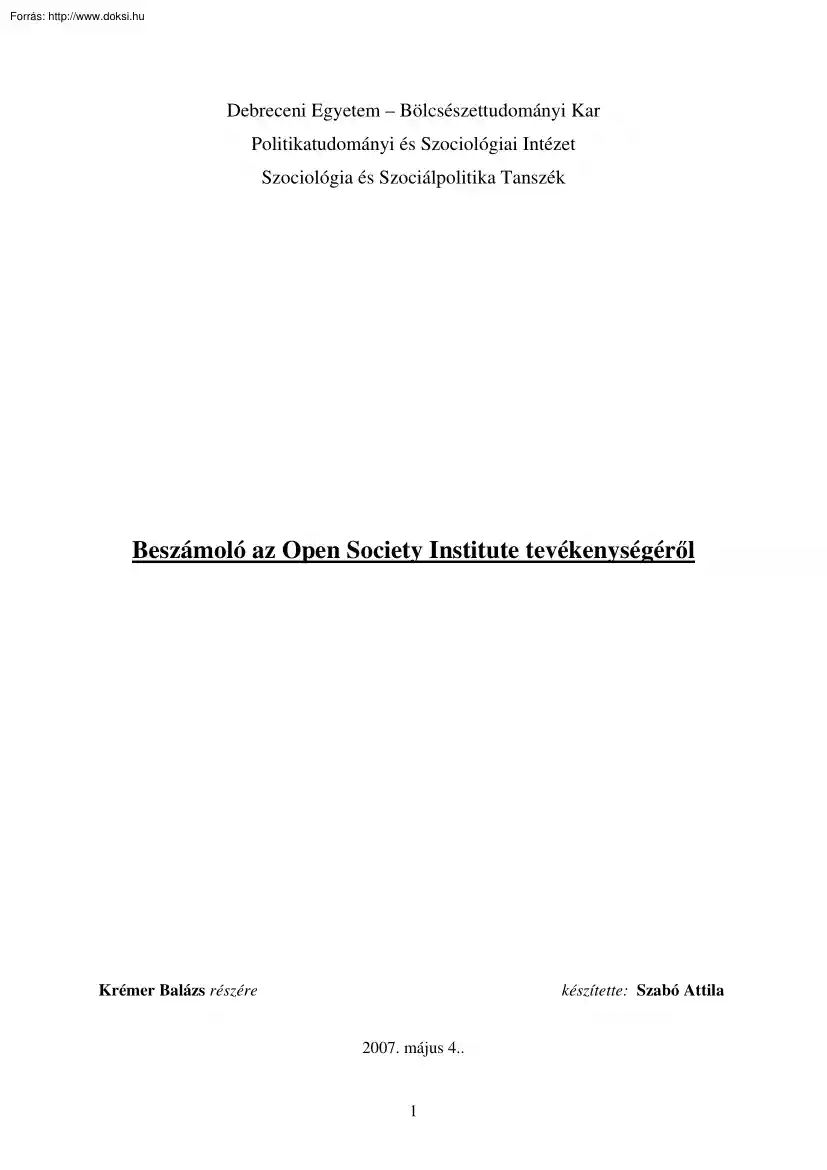
Please log in to read this in our online viewer!
No comments yet. You can be the first!
What did others read after this?
Content extract
Debreceni Egyetem – Bölcsészettudományi Kar Politikatudományi és Szociológiai Intézet Szociológia és Szociálpolitika Tanszék Beszámoló az Open Society Institute tevékenységéről Krémer Balázs részére készítette: Szabó Attila 2007. május 4 1 The Open Society Institute (OSI) Egy magánalapítvány, ami segítséget nyújt a nyitott társadalom kialakításban, elősegíti a demokratikus kormányzást. Elkötelezett az emberi jogok védelmében, a gazdaság és a társadalom reformjában. Segít elkezdeni ezeket a folyamatokat a jogi szabályozás, az oktatás, a népegészségügy és a független média támogatásával. Ugyanakkor az OSI a határokon és a kontinenseken átnyúlva küzd a korrupció és a jogi túlkapások ellen, másokkal szövetségben. Az OSI-t Soros György alapította a posztszocialista államokra szabva. Elsődleges célja a transzformáció elősegítése volt (ezt már’84-től támogatta Soros). Majd később ez kiterjedt a
világ más részeire is. Az OSI több mint 60 országban van jelen (az USA-ban is) Az OSI kezdeményezi a szabad és nyitott társadalom építését, a civil társadalom érősítésén, a gazdasági reformokon, az oktatás minden szintjén, a jogi és közigazgatási reformon, az emberi jogokon, a médián és a kommunikáción, a népegészségügyön, a művészeteken és a kultúrán keresztül, valamint ezek által. Az OSI központja New York valamint Budapest. Programok, kezdeményezések: AfriMAP (Az Afrikai Unió kormányainak figyelése és segítése) Arts & Culture Program (A kultúrpolitika változásának segítése) Children & Youth Programs (A gyermeke jólétének elősegítése Közép-Kelet Európában és a volt Szovjet tagállamokban) East East Program: Partnership Beyond Borders (A civil szektor együttműködésének segítése) Media Program (A szabad, független és plurális – beleértve a kisebbségi – médiarendszerek
alapításának és működtetésének támogatása) OSI Statement on George Soros’s Political Activities George Soros’s private political activities are wholly separate from the Open Society Institute. OSI is a nonpartisan, nonpolitical entityin accordance with U.S laws for tax-exempt organizations. Soros, as a private individual, is entitled to use his after-tax personal funds to support political candidates or parties within the parameters of U.S election law Any public statements on political issues are also made solely in his personal capacity. The Open Society Institute is not consulted or otherwise involved, and OSI is neither able nor permitted to comment. 2 Egy pár dokumentum: Joanne Csete Closed to Reason: The International Narcotics and Daniel OSI Board and HIV/AIDS Wolfe February 1, 2007 Open Society News: Working to Break the Chains of Injustice January 24, 2007 Ibrahima Kane Towards a People-Driven African Union: Current and Nobuntu OSI Obstacles & New
Opportunities Mbelle January 22, 2007 Confronting a Hidden Disease: TB in Roma Marta Schaaf Communities OSI OSI & World Lung Foundation December 14, 2006 Monitoring Education for Roma Confronting a Hidden Disease: TB in Roma Communities outlines the available literature and data on Roma and TB in Central and Eastern Europe and current efforts by governments and NGOs to address TB in Roma communities. Produced by OSI’s Public Health Program in collaboration with the World Lung Foundation, the report aims to bring research needs and program opportunities to the attention of national TB programs, ministries of health, social affairs, or minority integration, international agencies, and NGOs. Ajánlások: In-patient treatment Case finding (Keresni ajtórol ajtóra az eseteket) Patient support programs to ensure treatment completion Incentives (ösztönzés, felbújtás?) Advocacy and health communication Open Society News: Working to Break the Chains of
Injustice Winter 2006-7 OSI War criminals enjoying comfortable retirements while their victims are plagued by unaddressed injuries, loss, and anger. Reporters and parents denied public information crucial to fighting corruption or protecting children from illness. Vast numbers of people having no options to defend their rights because of poverty and scarce legal resources. 3 The examples above contribute to reducing or eliminating access to justice for millions of people around the world. When inadequate and discriminatory legal systems offer few options for resolving disputes fairly, people suffer injustice and their grievances multiply until, sometimes, they reach the breaking point. Violence and chaos replace the rule of law as frustrated victims take the process of administering justice into their own hands. This Open Society News, the first of a two-part series examining justice issues, focuses on a number of the Open Society Institute’s international efforts to increase
access to information and legal systems so conflicts can be resolved peacefully in ways that provide an enduring sense of justice. The stories in this international edition highlight how OSI and its programs, such as the Open Society Justice Initiative, are working with the international community and local actors to strengthen the rule of law. Taken as a whole, the individuals and organizations profiled in this edition of Open Society News demonstrate that efforts to make legal systems more accessible strengthen the rule of law by increasing public confidence in its ability to guarantee justice for all. Contents Confronting Flawed Justice Worldwide, Aryeh Neier Stop the Press: Censorship on the Rise in Latin American Democracies, Martha Farmelo The End of Impunity for Charles Taylor, Chidi Anselm Odinkalu Citizenship: A Key to Rights and Justice, Julia Harrington The Death Penalty: Cruel and Unusual, An Interview with Shami Chakrabarti and Bryan Stevenson Justice Detained: The Impact
of Pretrial Detention in Nigeria, Felicitas Aigbogun European Court Fails to Challenge Discrimination, James Goldston Three Decades After Two Million Killings, a War Crimes Tribunal Begins Work, Tracey Gurd and Kelly Askin Standing Up for Justice in Sierra Leone, Vivek Maru http://www.sorosorg/ + http://www.osaceuhu/ Archívum (OSA): 4 International Samizdat [Research] Association, an informal network of archives, museums, research centers and other institutions and individuals from all around world, who preserve, research, teach or study the samizdat phenomenon Projects under the European Union Culture 2000 program In 2004 the Open Society Archives received support from the European Union Culture 2000 program to realize its three year cooperation project, the "History After the Fall -- The Interdeterminacy of the Short Twentieth Century". Martus, the human rights tool in the ongoing fight against human rights violations, a global human rights reporting system, which
creates, stores and retrieves abuse information, a system that addresses the specific technological needs of the human rights community, especially of those working under dangerous conditions. Comintern (Communist International) Project Archive of the Third, or Communist International, written in about 90 languages, 521 documentary units, 220 000 files and 22 million pages, 15 thousand linear meters the the Russian State Archive for Social and Political History (RGASPI), successor to the Central Party Archive, has been scanned and became available as a searchable database. Annual International Human Rights Documentary Film Festival VERZIO is organized by Verzio Film Foundation, Open Society Archives and Hungarian Helsinki Committee. The principal aim of Verzio film festival is to highlight human rights issues and to create greater awareness in the public of current social and political affairs. The films address a wide range of issues affecting domestic and international affairs today:
civil conflicts; war crimes; terrorism; political repression; free media; nationalism and racism; equal opportunities, women's rights, domestic violence; child abuse. Screenings are accompanied by debates with filmmakers, journalists, and film scholars. The festival program includes retrospective, screenings for high-school students, and thematic workshops. For more information visit www.verzioceuhu About the Local Government Institute The Local Government Institute (LGI) was established in Seattle WA in 1988. To date, we have provided technical assistance publications or services to more than 4,000 local governments in all 50 states, as well as a number of foreign countries. LGI is a Federally recognized independent tax exempt 501(C)3 non-profit organization dedicated to improving the quality of local government throughout the English speaking world. To accomplish our mission, LGI provides technical assistance to local governments, develops "how-to" and reference
manuals and software, and provides services, information and advocacy which advances the quality, integrity and professionalism of local government based upon sound principles of public administration. While LGI is concerned about all areas of local government, its principal focus is on human resources administration, governance, and community development. Összességében, azt gondolom, jól látszik az OSI missziója és működése. A demokráciáért, a Popper-i nyílt társadalomért (amit maga Soros is megfogalmazott) szeretne minél többet 5 tenni, elsősorban a társadalomtudományok ”fegyvereivel”. Ennek eléréséért kutatókat támogat, illetve az ő munkájukat terjeszti. A posztszocialista államok transzformációjából leszűrt tapasztalatokat próbálja hasznosítani a világban, természetesen elsősorban azokban az államokban, ahol nem valósult még meg a nyílt társadalom. Ilyen értelemben a Magyarországi központ ”csak” diplomáciai előnyt
jelent hazánknak, mivel mi nem vagyunk az OSI fókuszában. Természetesen az is hatalmas előny, hogy egy ilyen gondolkodásmódú és presztízsű civil (magán?) think tank Budapesten székel, mivel így a szemléletmód és a tudás könnyebben szivárog át a magyar társadalomtudományi-, és közgondolkodásba. Az, hogy a nemzetközi problémákat kutatni kell, és hogy fejlett országként kötelességünk foglalkozni a fejlődők problémáival, az OSI filozófiájának lényege. (Megjegyzés: Az első négy oldal maga a beszámoló, amit tulajdonképpen egy az egyben másoltam a megjelölt honlapokról, ennek csak egy részét fordítottam magyarra a többit angolul hagytam. Ezen – az utolsó (5) – oldalon található az elemzésem, tehát, hogy mit is gondolok tulajdonképpen az OSI-ról. Itt nem részletezem, hogy mivel is foglalkoznak konkrétan, mert az – azt gondolom – a korábbiakból egyértelműen kiderül.) 6
világ más részeire is. Az OSI több mint 60 országban van jelen (az USA-ban is) Az OSI kezdeményezi a szabad és nyitott társadalom építését, a civil társadalom érősítésén, a gazdasági reformokon, az oktatás minden szintjén, a jogi és közigazgatási reformon, az emberi jogokon, a médián és a kommunikáción, a népegészségügyön, a művészeteken és a kultúrán keresztül, valamint ezek által. Az OSI központja New York valamint Budapest. Programok, kezdeményezések: AfriMAP (Az Afrikai Unió kormányainak figyelése és segítése) Arts & Culture Program (A kultúrpolitika változásának segítése) Children & Youth Programs (A gyermeke jólétének elősegítése Közép-Kelet Európában és a volt Szovjet tagállamokban) East East Program: Partnership Beyond Borders (A civil szektor együttműködésének segítése) Media Program (A szabad, független és plurális – beleértve a kisebbségi – médiarendszerek
alapításának és működtetésének támogatása) OSI Statement on George Soros’s Political Activities George Soros’s private political activities are wholly separate from the Open Society Institute. OSI is a nonpartisan, nonpolitical entityin accordance with U.S laws for tax-exempt organizations. Soros, as a private individual, is entitled to use his after-tax personal funds to support political candidates or parties within the parameters of U.S election law Any public statements on political issues are also made solely in his personal capacity. The Open Society Institute is not consulted or otherwise involved, and OSI is neither able nor permitted to comment. 2 Egy pár dokumentum: Joanne Csete Closed to Reason: The International Narcotics and Daniel OSI Board and HIV/AIDS Wolfe February 1, 2007 Open Society News: Working to Break the Chains of Injustice January 24, 2007 Ibrahima Kane Towards a People-Driven African Union: Current and Nobuntu OSI Obstacles & New
Opportunities Mbelle January 22, 2007 Confronting a Hidden Disease: TB in Roma Marta Schaaf Communities OSI OSI & World Lung Foundation December 14, 2006 Monitoring Education for Roma Confronting a Hidden Disease: TB in Roma Communities outlines the available literature and data on Roma and TB in Central and Eastern Europe and current efforts by governments and NGOs to address TB in Roma communities. Produced by OSI’s Public Health Program in collaboration with the World Lung Foundation, the report aims to bring research needs and program opportunities to the attention of national TB programs, ministries of health, social affairs, or minority integration, international agencies, and NGOs. Ajánlások: In-patient treatment Case finding (Keresni ajtórol ajtóra az eseteket) Patient support programs to ensure treatment completion Incentives (ösztönzés, felbújtás?) Advocacy and health communication Open Society News: Working to Break the Chains of
Injustice Winter 2006-7 OSI War criminals enjoying comfortable retirements while their victims are plagued by unaddressed injuries, loss, and anger. Reporters and parents denied public information crucial to fighting corruption or protecting children from illness. Vast numbers of people having no options to defend their rights because of poverty and scarce legal resources. 3 The examples above contribute to reducing or eliminating access to justice for millions of people around the world. When inadequate and discriminatory legal systems offer few options for resolving disputes fairly, people suffer injustice and their grievances multiply until, sometimes, they reach the breaking point. Violence and chaos replace the rule of law as frustrated victims take the process of administering justice into their own hands. This Open Society News, the first of a two-part series examining justice issues, focuses on a number of the Open Society Institute’s international efforts to increase
access to information and legal systems so conflicts can be resolved peacefully in ways that provide an enduring sense of justice. The stories in this international edition highlight how OSI and its programs, such as the Open Society Justice Initiative, are working with the international community and local actors to strengthen the rule of law. Taken as a whole, the individuals and organizations profiled in this edition of Open Society News demonstrate that efforts to make legal systems more accessible strengthen the rule of law by increasing public confidence in its ability to guarantee justice for all. Contents Confronting Flawed Justice Worldwide, Aryeh Neier Stop the Press: Censorship on the Rise in Latin American Democracies, Martha Farmelo The End of Impunity for Charles Taylor, Chidi Anselm Odinkalu Citizenship: A Key to Rights and Justice, Julia Harrington The Death Penalty: Cruel and Unusual, An Interview with Shami Chakrabarti and Bryan Stevenson Justice Detained: The Impact
of Pretrial Detention in Nigeria, Felicitas Aigbogun European Court Fails to Challenge Discrimination, James Goldston Three Decades After Two Million Killings, a War Crimes Tribunal Begins Work, Tracey Gurd and Kelly Askin Standing Up for Justice in Sierra Leone, Vivek Maru http://www.sorosorg/ + http://www.osaceuhu/ Archívum (OSA): 4 International Samizdat [Research] Association, an informal network of archives, museums, research centers and other institutions and individuals from all around world, who preserve, research, teach or study the samizdat phenomenon Projects under the European Union Culture 2000 program In 2004 the Open Society Archives received support from the European Union Culture 2000 program to realize its three year cooperation project, the "History After the Fall -- The Interdeterminacy of the Short Twentieth Century". Martus, the human rights tool in the ongoing fight against human rights violations, a global human rights reporting system, which
creates, stores and retrieves abuse information, a system that addresses the specific technological needs of the human rights community, especially of those working under dangerous conditions. Comintern (Communist International) Project Archive of the Third, or Communist International, written in about 90 languages, 521 documentary units, 220 000 files and 22 million pages, 15 thousand linear meters the the Russian State Archive for Social and Political History (RGASPI), successor to the Central Party Archive, has been scanned and became available as a searchable database. Annual International Human Rights Documentary Film Festival VERZIO is organized by Verzio Film Foundation, Open Society Archives and Hungarian Helsinki Committee. The principal aim of Verzio film festival is to highlight human rights issues and to create greater awareness in the public of current social and political affairs. The films address a wide range of issues affecting domestic and international affairs today:
civil conflicts; war crimes; terrorism; political repression; free media; nationalism and racism; equal opportunities, women's rights, domestic violence; child abuse. Screenings are accompanied by debates with filmmakers, journalists, and film scholars. The festival program includes retrospective, screenings for high-school students, and thematic workshops. For more information visit www.verzioceuhu About the Local Government Institute The Local Government Institute (LGI) was established in Seattle WA in 1988. To date, we have provided technical assistance publications or services to more than 4,000 local governments in all 50 states, as well as a number of foreign countries. LGI is a Federally recognized independent tax exempt 501(C)3 non-profit organization dedicated to improving the quality of local government throughout the English speaking world. To accomplish our mission, LGI provides technical assistance to local governments, develops "how-to" and reference
manuals and software, and provides services, information and advocacy which advances the quality, integrity and professionalism of local government based upon sound principles of public administration. While LGI is concerned about all areas of local government, its principal focus is on human resources administration, governance, and community development. Összességében, azt gondolom, jól látszik az OSI missziója és működése. A demokráciáért, a Popper-i nyílt társadalomért (amit maga Soros is megfogalmazott) szeretne minél többet 5 tenni, elsősorban a társadalomtudományok ”fegyvereivel”. Ennek eléréséért kutatókat támogat, illetve az ő munkájukat terjeszti. A posztszocialista államok transzformációjából leszűrt tapasztalatokat próbálja hasznosítani a világban, természetesen elsősorban azokban az államokban, ahol nem valósult még meg a nyílt társadalom. Ilyen értelemben a Magyarországi központ ”csak” diplomáciai előnyt
jelent hazánknak, mivel mi nem vagyunk az OSI fókuszában. Természetesen az is hatalmas előny, hogy egy ilyen gondolkodásmódú és presztízsű civil (magán?) think tank Budapesten székel, mivel így a szemléletmód és a tudás könnyebben szivárog át a magyar társadalomtudományi-, és közgondolkodásba. Az, hogy a nemzetközi problémákat kutatni kell, és hogy fejlett országként kötelességünk foglalkozni a fejlődők problémáival, az OSI filozófiájának lényege. (Megjegyzés: Az első négy oldal maga a beszámoló, amit tulajdonképpen egy az egyben másoltam a megjelölt honlapokról, ennek csak egy részét fordítottam magyarra a többit angolul hagytam. Ezen – az utolsó (5) – oldalon található az elemzésem, tehát, hogy mit is gondolok tulajdonképpen az OSI-ról. Itt nem részletezem, hogy mivel is foglalkoznak konkrétan, mert az – azt gondolom – a korábbiakból egyértelműen kiderül.) 6
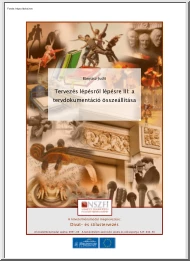
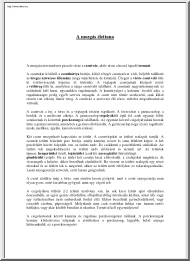
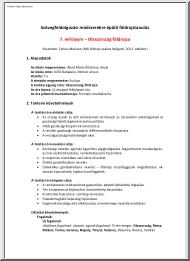
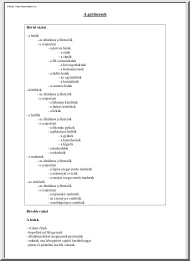
 Just like you draw up a plan when you’re going to war, building a house, or even going on vacation, you need to draw up a plan for your business. This tutorial will help you to clearly see where you are and make it possible to understand where you’re going.
Just like you draw up a plan when you’re going to war, building a house, or even going on vacation, you need to draw up a plan for your business. This tutorial will help you to clearly see where you are and make it possible to understand where you’re going.